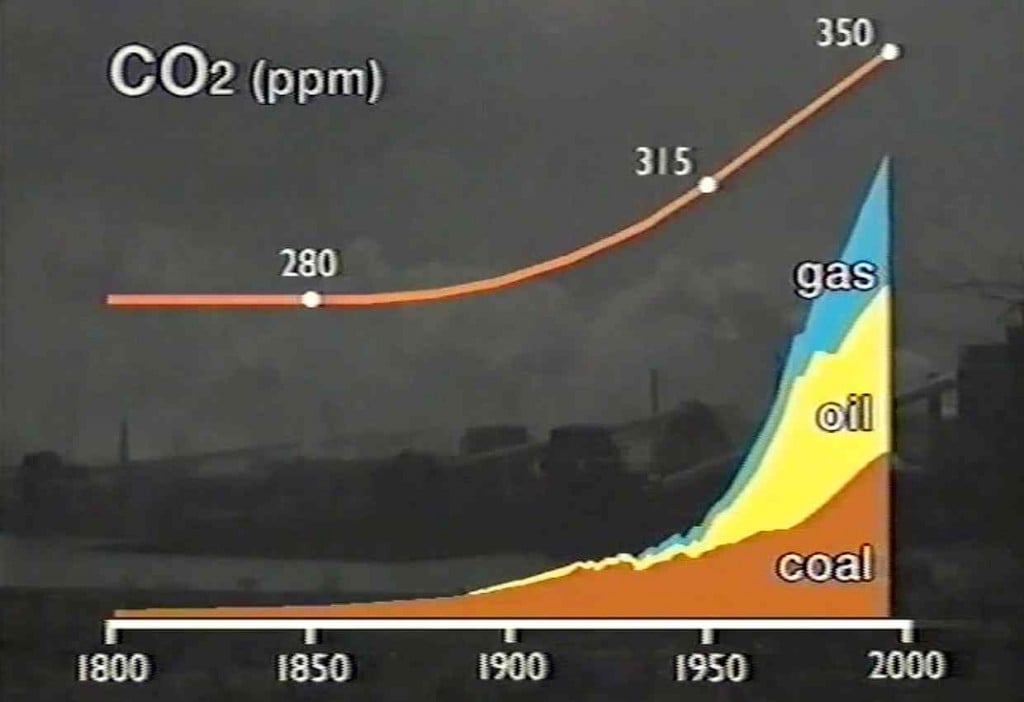Why are most successful entrepreneurs liberal?
It is a question that baffles me.
You would think people who became a huge success in our capitalism system would embrace it and try to promote it. Yet, again and again, we see these folks adopt a liberal and progressive stance. They want big government programs to level the playing field...
People like Zuckerberg, and Bezos, and Buffett and Gates, Cuban...
They support higher taxes and bigger government programs.
Why?3 scenarios:
1. You have wood pulping factory and 80 per cent of your competitors care about the local environment. They process the huge quantities of water needed to clean wood pulp.
20 per cent do not care, dump untreated water and destroy their local lakes or rivers. The cost saving means they beat you out on price. What do you do? Quit, pollute or demand regulation?
Bear in mind that if you pollute, you might need a private army to stop the local tourist industry and fisher folk from burning your factory to the ground.
2. You are a decent person who runs a fishing fleet. You pay workers a modest wage but your company is still going under because a lot of your competition is using slave labor (the norm in many parts of the world) or not paying workers at the end of long voyages (common place). What do you do? Quit, use slaves or demand regulation?
3. You run a bank with a honest products. The bank across the way sells false products with promises it will not deliver on, but will make a huge profit before it folds. Your bank is destroyed by poor public perception. Regulate or quit?I am not following your arguments. How does regulation relate to liberalism? As a conservative, I am not against government regulations when they make sense... I am against government over reach and regulations that are excessive and intrusive and in some cases, cronyism...
The liberal policies I am talking about is high taxes which people like Buffett have stated he support raising the taxes... yet he personally pay very little taxes and hire lawyers and accountants to keep them as low as possible. Is that hypocritical of him?
@ jackclee The answer is because they are a lot smarter than conservatives and you!
Your talking about "Hollywood " snowflake corporations ? Social media queens , Apple , Face Book , Microsoft , and most of these entities had either the incredible subsidies from their home states or D.C. $ or illegal immigrant employees. AND then they took the factories and call centers to china , japan , viet-nam , canada .............
Name them ;
Clothing ?
Computer?
Sporting goods ?Geesh, ahorseback. Do you ever think about checking out some of your proclamations before issuing them.
Apple started in a garage. Facebook was a couple college kids, and Gates was a coding geek that built a better mousetrap.
Of course, maybe you know something I don't, like; Bill Gates really stole his operating system from a couple Indian programmers in his dorm. Or Wozniak's dad not only lent him their garage, but also a few million in start-up cash. I never believed the rumor that Zuckerburg's Facebook was really a CIA black-op for spying on college kids - with unlimited taxpayer-dollar support, but maybe that would explain where he got the money for college in the first place. Hmm...
ps. Considering the "fact" that every snowflake is a unique entity, maybe a different label might serve you better.
GA
Paul,
Are they really smarter or perhaps have a guilty conscious?.
You know that "liberal" is not the opposite of "capitalist". The title of this thread indicates exactly that. Likewise, the belief that government plays an important role in society, is not an anti-capitalist viewpoint.
Many liberals simply believe it is time for Capitalism version 2.0, i.e. an economic system that takes into consideration the social and environmental issues we are aware of, and actively seeks to improve or (at the very least) not worsen them.
Here's the problem. The current economic system is built with one singular priority in mind: maximum profit.
That means, if you give a company a choice between: A) making 30% profit and not harming the environment or people, or B) making 90% profit and harming the environment or people, then the current economic framework pushes companies towards option B (companies can even be sued by their shareholders for not maximising profits).
There are two ways to tackle this. The first is to change consumer behaviour. So customers vote with their wallets, and buy from companies that are socially and environmentally responsible, while not buying from those that aren't. That's the purely economic way to deal with the issue.
The problem with this approach is that some people can't afford to be choosy. They have to buy the cheapest they can find. That means socially irresponsible companies who make a product more cheaply, sell more products, and earn more profit are rewarded for that behaviour.
The other approach is through regulation. E.g. Congress can make something socially or environmentally irresponsible illegal. So no one can do it, and if they do, they can be penalized for it.
The problem with this approach is finding the right balance between regulating an industry and stifling it. Too little regulation encourages companies to behave irresponsibly. Too much, and you burden that industry and make it harder for entrepreneurs etc.
That's why there needs to be sensible discussions about what regulations are overreaching, and what regulations are necessary for the protection of the environment and people. We already know that companies, left to their own devices, will not act responsibly. They will collude, bribe, con, lie, and defraud their way to greater profits, because that is what the current system pushes them to do.
The whole legislative framework underpinning the economic system needs to be reviewed and revised. Nobody wants government overreach. But there needs to be some discussion about exactly what the threshold is in terms of how intrusive government can be in an industry.
That would mean weighing up all the issues in a sensible, calm atmosphere and arriving at some conclusions, maybe with some compromises along the way. Sadly I really can't see that happening in the current political environment.I don't get that listening to Bernie Sanders and Elizabeth Warren. They are perfectly happy with socialism over capitalism...
It may just be wishful thinking on your part.
What would capitalism 2.0 look like?It could be wishful thinking on my part, but then again it could be that some people assume anyone who criticises capitalism is anti-capitalist. I don't think either Sanders or Warren are anti-capitalists.
What would capitalism 2.0 look like? That's a big question, and there's no definitive answer. It's a bit vague, as new ideas tend to be when they are taking shape. My own summary of capitalism 2.0 would be a change of the current business ethos: "maximize profit", to "maximize profit responsibly". What does "responsibly" mean? Again, there is room for public discourse here, but I suggest something that doesn't cause harm to people or the environment would be a reasonable starting point, as that's measureable."something that doesn't cause harm to people or the environment would be a reasonable starting point,"
This sounds nice, but I don't see it as reasonable. A single truck going down the road carrying products made causes damage - certainly no one would think it unreasonable, but it does cause damage.
But a new manufacturing plant? That's a whole different ball game and you will find people that will protest against anything that goes up. A 10,000 sq ft building with a small parking lot? Unacceptable - it has changed the runoff pattern of water. A pipeline? Totally unacceptable - it may get a hole one day and leak whatever is in it.
I trust you understand what I'm saying - that everything we do causes environmental damage to some point, and there are people out there that will complain about it.Some people care about details.
I noticed this today:
That graphic comes from a Shell video made in 1991.
Shell understood perfectly well what climate change was about twenty five years ago. Just as the tobacco companies understood cigarettes caused cancer thirty years before they admitted it.
Many companies only care about the money and are a menace to human life.
Cutting '75% of regulations' (as Trump has promised) will facilitate them.
https://www.theguardian.com/environment … nd-ice-ageSure, determining what "responsibly" means in this context is difficult, but I don't think it's beyond the realms of possibility. As I said, "there is room for public discourse. . ."
The meaning of "responsibly" that's most relevant here is, behaviour that fulfills some obligation. What obligations do people and, by extension, companies, have to society? You could start there and work backwards to determine what "responsibly" means.
Well Don, I certainly think you are wrong about Bernie. I have listened to him speak of his ideas of society, and they sure didn't sound pro-capitalism to me. But I think you are right about Warren.
From what little I have read, I cannot support this new "Capitalism 2.0" concept, but I very much like your thought about "maximize profit responsibly." The financial market structures leading up to the 2008 crash certainly seems to validate that thought.
GA
They have open minds. They see possibilities that others don't see.
Yes but do they also see the inefficiencies of liberal policies. Name one government program that has been ran well? And yet, they want more of it. What make them think the same people who run the VA, the EPA, the NOAA, and HHS, DHS, the IRS... can do a better job of running our lives?
As a conservative, I want smaller government and individual self reliance and local and private foundations to do most of the heavy lifting. People like Catholic charities and the red cross have traditionally done much more with less money to help the poor.It IS THAT simple understanding of the differences between the two political halves of America that define all political divide today . The left doesn't care at all about the deficiencies of government programs as long as they don't pay directly for all of it and gain more than they spend from it .
The right on the other hand is old school economics , Demanding a dollars worth of service for the dollar spent . The V.A. IS THE PRIME example of federal programs , it is a monstrosity , totally failing in service , care , and efficiency . Does the left care - No , It's free and it covers the political issue of caring for those who DO serve . The subsidization of higher education is more their style , Get a low interest education loan to keep them from having to enter the work force - don't pay it back in the end and then complain because their useless education , that they didn't even use at all , was too expensive . "So give me more ".
There has never been a government program that hasn't evolved to less eventual service , more expensive and higher taxation and a major jobs program for entitlement employment !
The V.A.
E.P.A.
G.S.A.
The Dept. of Education ,name them , all of them ,eternally tenured and forever entitled .That is why conservatives believe in a limited government... So things are better lefty to local government and private industry and charities...
I also favor smaller government. But it doesn't take a liberal to see that concentrating too much wealth and power in the hands of a small number of people is bad for the economy. The economy runs on consumption. Rich people invest more than they consume.
Gates, Buffett and other entrepreneurs like them aren't liberals. They are pragmatists. That's why they succeeded so well.
By the way, I haven't met Bill Gates, but I have met Microsoft executives who knew him. The man they described was nowhere near a liberal.
Where is the data to support the claim that liberals are more often successful entrepreneurs?
Hello Jackclee, I think I understand your point, but it's too bad you can't edit your OP title, because I don't think your title matches your OP. I would venture that there are tons of highly successful entrepreneurs in our nation that are not what you say - Liberals et al. I would think that successful restaurant entrepreneurs would especial rebut your title's claim)
By your examples, you should have added "mega-successful" to entrepreneurs. Then the answer is simple - they can afford it.
To hold such views as you mention suggests 'enlightenment', (hear that Cred?), and who doesn't want to seem 'enlightened'? And when cost isn't an issue, what the hell, it's like buying an honorary degree. Feels good, looks good, so do it.
GA
- ahorsebackposted 8 years ago
0
Like the Steve Jobs , Mark Zuckerburgs beg , borrow or steal all that you can from the other originators to claim the entire kingdom for your own and then NOT until you realize that you are incredibly wealthy and irreversibly rich do you even THINK about sharing anything .at all .
Then give one or two percent to only the noblest P.C. and air headiest causes , Greenpeace , global warming , " social re-engineering" , harbor seals and African chimps , while they daily pass by the broken down neighborhoods of their immigrant employees in their customized limo's. !Good heavens! You have glimpsed some of the the evils of inequality. Never thought it could happen.
In the olden day, these robber barrons use their wealth to create museums and foundations as a way to give back. People like Getty, Carnegie, Rockerfeller, and Frick...
At least they are contributing to society and helping the common folks...
Now, their liberal policies actually hurt the people.+++++++++++++++++++++++++++And there is the absolute truth of liberal rich ! Spend it on Armani and Lear jet environmentalism .Whatever they give , Give it to Al Gore and liberal arts and socialist - activist political causation .
Hold on a minute Jackclee, in those "olden days" you speak of, those "robber-barrons" didn't take the philanthropy path, (the museums and such), until the last years of their lives. During their entrepreneur years they were ruthless exploiters.
One example you might look at, for special emphasis of that point, is Frick. Check out the lives lost in the dam and Gentlemen's Club episode of his entrepreneur years
GA
- ahorsebackposted 8 years ago
0
Most successful entrepreneurs are not so liberal as they are inheritors of something someone else earned , sweated for and died doing ! Lets face it , show me a rich liberal , I'll show you a foundation, trust fund baby !
LMAO. As if conservative successful entrepreneurs (someone who lives in one of the run-down redneck red states that owns the most trailer parks) don't have trust funds and all the other BS. What's it like to live in your world of make-believe? Is there unicorns and identical looking orange elves (mini-Trumps) living among you?
You're describing the basis for Marxism.
Oh and I completely forgot subsidies and grants from government --- or else "Successful Liberal Entrepreneurs" wouldn't begin to even exist !
Well, and if bankruptcy at taxpayer expense weren't part of corporate welfare, Donald Trump wouldn't be President.
So ? What entrepreneur would be rich without Federal , state or local tax breaks , subsidies , grants , give away's , or a stimulus packages these days . And you perhaps think that only conservatives get them ?
Trump , for one , played the existing tax schedules and encouragements like they are designed , What business doesn't do that ? What family of eight doesn't do the same by accepting "earned Income credits " etc...... getting back far more than they pay in ?
The alternative ? Another Obama ? An ivory Tower subsidized messiah ?You described successful liberal entrepreneurs as either trust funders or foundations babies. Does that not also describe Donald Trump?
That's the problem with liberal minds , Do you also believe Trump is anything BUT a centrist , his ideologies border the right and left both , he is simply a corporate elite , playing the tax and business economy to his advantage , touting the plans of the right and the left .
Simply the best that the sheople could chose .
Where is Reagan when we need him !
Seeking to become rich in business and being an advocate of free market capitalism are two different things. Don't confuse what is sometimes called crony capitalism with free market capitalism. Many entrepreneurs on both the political left and right are crony capitalists. Large corporations have a long history of lobbying for economically destructive government intervention when this will increase their profits more than competing on the free market alone.
Corporations collectively spend hundreds of millions of dollars trying to influence politicians to pass legislation that will increase the company's profits while also increasing costs for consumers, competitors, and taxpayers. The misguided criticisms of capitalism that have inspired the idea, vague as it is, of Capitalism 2.0 are usually concerned with outcomes that are a result of government policies and not free markets.
Without an appeal to some sort of theory of rights, the idea of social responsibility is meaningless. To have a responsibility to others presupposes the concept of duty, and the concept of duty presupposes a concept of rights. I've yet to hear those calling for social responsibility offer any defined theory of rights to support their views, which are frequently arbitrary and without any intellectually consistent philosophical foundation. My experience has been that when people speak of social responsibility what they have in mind as a normative prescription is whatever leads to a state of affairs they happen to find emotionally gratifying.
A philosophical problem for the social responsibility crowd is that many of them hold that ecosystems have intrinsic value. Claiming that we have a responsibility to protect ecosystems for their own sake requires making the argument that animals, no matter how unintelligent, and non-volitional living things such as plants have rights. If they have rights, then shouldn't they first and foremost have the right to live without being terminally utilized by humans? If they have that right, then humans have no right to survive at all.
On the other hand, trying to make the argument that we have a duty to always protect the environment because this benefits humans runs into the problem that humans often benefit more from not worrying about the effects of their actions on the environment. We wouldn't have the standard of living we have today if people had decided from the industrial age onward not to pollute the air with fossil fuels. We should be thankful that people didn't care much about the environment for its own sake in the past. We'd be much poorer today if they had!I agree mostly with what you said. It still does not answer my original point. Why people who are successful in building a business such as Bill Gates then turn around and want to adopt socialistic policies of big government and raising taxes...
Related Discussions
- 243
What should be done about the economic crisis in Europe and the U.S.?
by Ralph Deeds 12 years ago
Economists Agree: Solutions Are ElusiveBy EDUARDO PORTERPublished: April 23, 2013 "Last week the International Monetary Fund hosted a conference of some of the world’s top macroeconomists to assess how the most intense crisis to have shaken the industrialized economies since the...
- 140
Is Capitalism A Fake Ideology, A Crumbling Sacred Cow?
by loua 13 years ago
Like all sacred cows, capitalism has failed the acid test of time; capitalism has not proven itself worth the sweat and blood it took to erect this edifice of greed and corruption, for it has traded the integrity of the Constitution for the opportunity to dupe the people into building this colossal...
- 54
Three Quick Arguments Against Captialism
by Sooner28 12 years ago
Yes, I know there is a typo in Capitalism...1. Capitalism has no mechanism to deal with dwindling finite resources. With the population growing, and other countries turning into consumer societies like the United States, our resources will be destroyed very quickly (just remember the...
- 286
Why Is the Right so Scared (and confused) by Democratic Socialism?
by J Conn 6 years ago
This article tended to resonate with how the left and the right view the issue.https://www.nytimes.com/2019/02/07/opin … union.html
- 95
What happens to Capitalism if...
by A Thousand Words 11 years ago
There's no one to step on/take advantage of anymore?Capitalism is defined as:- free-market system: an economic system based on the private ownership of the means of production and distribution of goods, characterized by a free competitive market and motivation by profit. Doesn't raise any red flags...
- 9
Do you think it is wise to praise the Chinese successful 'state capitalism' ?
by Beata Stasak 15 years ago
Do you think it is wise to praise the Chinese successful 'state capitalism' ?The China's semi-command economics are successful in times of the global recession and for some people it feels like the way to go. There is growing Chinese investment all around the world.Behind U.S. global expansion was...















